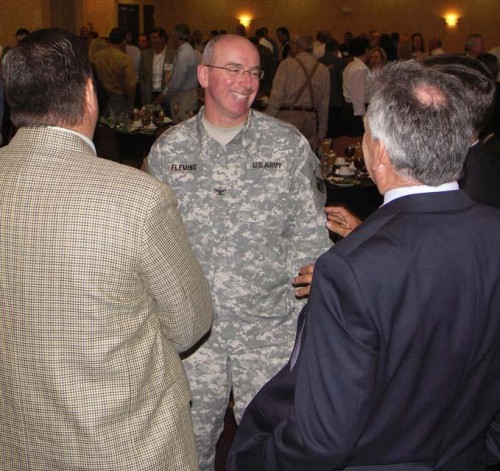Shipbuilder on hot seat
December 14, 2011
Dawn Smith Budzinski
December 16, 2011How national policies and practices impact local projects could be fully exposed if Sen. David Vitter (R-La.) has anything to say about it. Vitter last week sent a letter to the U.S. Government Accountability Office, calling for a comprehensive audit of the U.S. Army Corps of Engineers funding and contracting practices from 2004 to 2011.
“There has been far too much inefficiency in the corps of engineers,” Vitter said. “[T]hey need to show us where the billions of taxpayer dollars they receive are being used.”
Vitter’s 1-page, 9-paragraph letter to GAO Comptroller Gen. Gene Dodaro states that the corps receives a budget of nearly $5 billion every year to “study, design, construct, operate and maintain a wide range of water projects for purposes such as flood control, navigation, hurricane protection and ecosystem restoration.”
The senator charges, however, that the GAO, the National Academy of Sciences and other agencies have reported inefficiencies in how the corps conducts its work.
“This has led to a backlog of millions of dollars of projects that have not yet been started and hundreds of incomplete projects,” Vitter’s letter said. “These delays continue to increase the total costs of completing projects that were often authorized and started decades ago.”
Vitter hinted at projects including the Morganza-to-the-Gulf effort, of which the Terrebonne Levee and Conservation District and residents of Terrebonne Parish took upon themselves to finance and begin with inner line storm protection.
“I would like the GAO review to focus on operation and maintenance activities, flood protection projects, environmental mitigation, coastal restoration and emergency funding that the corps has received during the period covering fiscal years 2004-11,” Vitter’s letter said.
Vitter specifically asked Dodaro to look into cost overruns that the senator said were contributing factors between estimates and actual costs. Additional points of request include examining internal controls and oversight procedures for the corps, a review of updated information for non-federal project sponsors, investigating dredging and maintenance contracts and the costs associated with them, and the process by which the corps decides to undertake projects with agency resources or by way of private contractors.
When asked, TLCD Executive Director Reggie Dupre said he was not aware of Vitter’s requested audit and was not certain that it was made with Terrebonne, Lafourche and St. Mary parishes in mind.
“Corps reform has been discussed in Washington for a long, long time and maybe Sen. Vitter sees that requesting some sort of audit would be a way of approaching the issue. I don’t know,” Dupre said.
“Although we have not officially received Sen. Vitter’s letter, the U.S. Army Corps of Engineers welcomes any review or analysis that Congress believes is in the best interest of our country,” U.S. Army Corps of Engineers spokesman Ken Holder said. “We look forward to any opportunity to provide information on the important work the corps does for the nation.”
“Backlogs and red tape have plagued the corps, especially since hurricanes Katrina and Rita,” Vitter said. “I want to start implementing necessary reforms that will cut costs and speed up critical flood control projects.”
A spokeswoman with the GAO said it had not yet received Vitter’s correspondence and Dodaro was unavailable to comment on when any audit of the corps might begin or how long it would take to complete.
U.S. Army Corps of Engineers Col. Ed Fleming speaks with members of the South Central Industrial Association before publicly admitting the corps inability to meet local demands. MIKE NIXON








